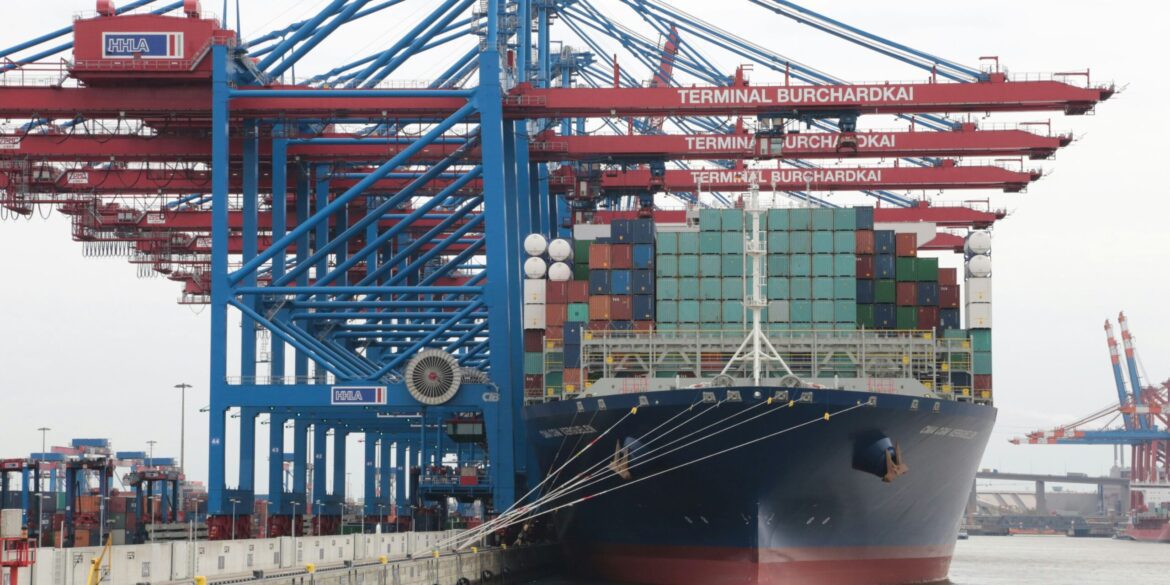President Donald Trump has announced a dramatic proposal to impose a 50% tariff on all goods imported from the European Union, citing ongoing frustrations over what he describes as unfair trade imbalances. The announcement, made on May 25, 2025, has already triggered sharp reactions from European leaders and sent shockwaves through international markets.
The proposed tariffs, which are set to take effect on June 1, 2025, unless the EU agrees to new terms, are seen as one of the most aggressive moves in recent U.S. trade policy history. Trump stated that the measure is aimed at correcting a long-standing trade deficit with the European bloc, which reportedly reached $235.6 billion in 2024.
Trade Dispute Sparks Diplomatic Showdown
In his remarks from the White House, President Trump said the United States is no longer willing to tolerate what he called “decades of economic exploitation.” He argued that European producers benefit from access to the U.S. market without offering reciprocal treatment for American exports.
“We’re not looking for a deal. We’ve set the deal. It’s at 50%,” Trump declared. According to administration officials, the tariffs would apply to a broad range of European products, including automobiles, food and beverages, luxury goods, pharmaceuticals, and industrial machinery.
The Trump administration emphasized that products manufactured in the United States, even by European-owned companies, would be exempt from the tariffs. This is viewed as an effort to encourage European firms to relocate production to American soil.
EU Pushes Back, Urges Negotiations
The European Union has responded swiftly and forcefully. EU Trade Commissioner Maroš Šefčovič criticized the move, calling it counterproductive and harmful to global trade stability. “Trade should be based on mutual respect, not threats,” Šefčovič said during a press briefing in Brussels.
Other European officials echoed these concerns. French Trade Minister Laurent Saint-Martin called the proposed tariffs “an unjustified provocation,” while Irish Prime Minister Micheál Martin stressed the need for dialogue, warning that the measures could severely damage transatlantic relations.
German Member of the European Parliament Bernd Lange, chair of the EU Parliament’s trade committee, indicated that the EU is already preparing a list of countermeasures. These could include tariffs on U.S. exports valued at up to €100 billion, targeting sectors such as agriculture, aviation, and technology.
Market Reactions and Economic Fallout
The proposal has had an immediate impact on financial markets. U.S. stock indexes, including the S&P 500, Nasdaq, and Dow Jones, fell sharply following the announcement. Analysts attribute the drop to fears of a trade war and its potential to disrupt global supply chains and consumer confidence.
Shipping and logistics companies are already reacting. Several major transatlantic shipping routes have been delayed or canceled as firms anticipate decreased demand and prepare for increased costs. Ports in New York, Los Angeles, and Miami are reporting a slowdown in container traffic linked to EU imports.
Economists warn that the proposed tariffs could significantly impact both consumers and manufacturers. Products from Europe could become markedly more expensive, leading to inflationary pressure. Industries that rely on European components—particularly in the automotive and pharmaceutical sectors—could face increased production costs and operational uncertainty.
Impact on American Consumers and Tech
One of the more controversial aspects of Trump’s broader trade agenda includes a potential 25% tariff on smartphones and consumer electronics manufactured abroad, including products from Apple and Samsung. If enacted, this measure could lead to higher prices for U.S. consumers, particularly in the electronics and telecommunications sectors.
Although the administration argues that such moves will encourage companies to repatriate manufacturing to the U.S., experts caution that restructuring supply chains is a long-term endeavor that could lead to short-term disruptions and cost increases.
Uncertain Path Ahead
With just days remaining until the proposed tariffs go into effect, uncertainty surrounds the next steps. Diplomatic channels remain open, but both sides appear entrenched in their positions. The U.S. is demanding immediate concessions, while the EU insists on structured negotiations rooted in mutual respect.
This standoff underscores the fragility of global trade relations and the far-reaching consequences of protectionist economic policy. As industries, investors, and consumers brace for impact, the world watches to see whether the transatlantic allies can find common ground or if they are headed for a prolonged economic standoff.


